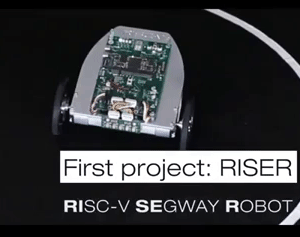News & Events
Mercury+ XU1 & Mercury XU5: More variants

The range of applications covered by the Mercury+ XU1 and Mercury XU5 SOMs, which are based on the Xilinx Zynq UltraScale+ MPSoC, is now even bigger. Thanks to three new variants, six different types are now available, which at the same time demonstrates the great flexibility and future-proof of the Enclustra modules. The following variants of the Mercury+ XU1 are now also available:
- ME-XU1-6CG-1E-D11: cost-efficient
- ME-XU1-15EG-2I-D12E-G1: 16 GTH transceivers
- ME-XU1-9EG-3E-D12E: high-performance
Furthermore the additional Mercury XU5 variant is available:
- ME-XU5-2CG-1E-D10H: cost-efficient
Enclustra also offers customer-specific variants. To find out more, simply send us a request.
FPGA Manager API updated
Enclustra has continuously improved the FPGA Manager API in the recent months. As previously reported, the API library will also be supplied henceforth as a NuGet package, which will make integration and updates significantly easier. The API now officially supports Visual Studio 2019 and contains various bug fixes and improvements – such as the ability to connect several USB 3.0 devices to the same PC at once, even to various host controllers.
The entire change log is available on the API site. If you have an existing maintenance agreement for your FPGA Manager, simply send us an e-mail and we will send you the latest version of the FPGA Manager.
Balancing master
 The real acid test for a product comes– at the latest– when you use it yourself in a project.This is exactly what happened with the engineering company imt when it developed a trade fair demo in just four weeks. The idea of a self-balancing robot came to fruition quite quickly, with tried-and-tested procedures and the latest technologies and tools being used in the development of the idea.
The real acid test for a product comes– at the latest– when you use it yourself in a project.This is exactly what happened with the engineering company imt when it developed a trade fair demo in just four weeks. The idea of a self-balancing robot came to fruition quite quickly, with tried-and-tested procedures and the latest technologies and tools being used in the development of the idea.
A Mars AX3 FPGA module from FPGA specialists Enclustra serves as the basis for the robot. This module significantly reduced the amount of needed hardware development work, as only a very simple base board had to be developed with the power electronics and sensor systems. The detailed documentation, the VHDL reference design, the 3D CAD model and the PCB footprint – that are freely available for all Enclustra modules – helped to ensure that the PCB worked right away.
It took very little time to choose the system partition and the programming tool: With the DATAFLOW Studio , that is developed by imt, the implementation of the system was a breeze. The DATAFLOW Studio contains a RISC-V soft processor which takes care of control and regulation of the entire robot. All sensors and actuators were able to be quickly and simply connected to this high-performance open source processor via the FPGA logic.
The project was only able to be successfully carried out and the robot got up and running in such a short period of time by combining these technologies – and of course thanks to the extensive knowledge of the imt engineers.
The Mars ST3 base board is here

The Mars ST3 is finally here – the base board for all applications that need a display. In addition to conventional standard interfaces, it offers HDMI, Mini DisplayPort as well as Mobile Industry Processor Interfaces (MIPI) for directly connecting a camera. When combined with an SoC module such as the Enclustra Mars XU3, this makes this combination the preferred platform for all applications that require an operating system and a high-resolution GUI.
Order your Mars ST3 now.
The Mercury+ XU9 is in production

The latest Xilinx® Zynq® UltraScale™+ MPSoC module from Enclustra is now in production. The Mercury+ XU9 is designed for extremely high memory bandwidth and large data volume – which we will test extensively in September, when the first assembled modules have arrived. Thanks to the two 64-bit DDR4 SDRAM banks (PS & PL), the module achieves a memory bandwidth of up to 38.4 GByte/sec. Twenty MGTs with transfer rates of up to 15 Gbit/sec ensure the rapid transfer of data to and from the module.
In addition to six ARM® cores, the 74 × 54 mm small modules feature a Mali™ 400MP2 GPU, 16 GByte eMMC flash memory, USB 3.0 and 178 user I/Os. The EV variants of the Mercury+ XU9 also come equipped with a H.264 / H.265 video codec.
If you want to get your hands on a Mercury+ XU9 as soon as possible, you should apply for our Early Access Program.
91 - 95 of 237 news items
